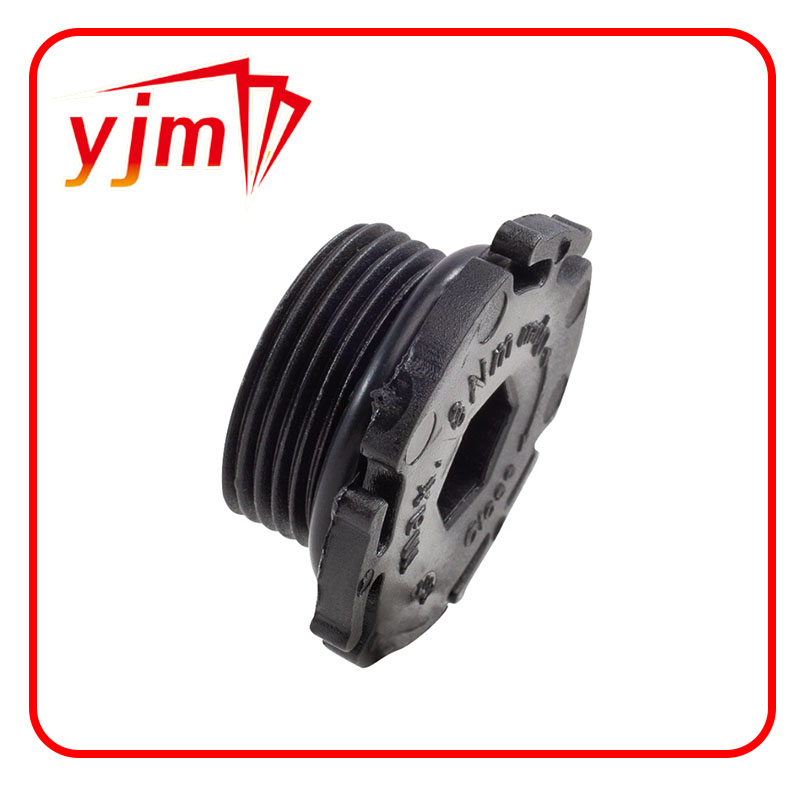trailer hub grease seal
Understanding Trailer Hub Grease Seals Importance and Maintenance
When it comes to maintaining the performance and longevity of your trailer, one critical component that often goes overlooked is the trailer hub grease seal. These seals play an essential role in ensuring that the wheel bearings remain lubricated and protected from outside elements such as dirt, water, and debris. In this article, we will explore the importance of hub grease seals, how to properly maintain them, and signs that indicate they may need replacement.
What is a Trailer Hub Grease Seal?
A trailer hub grease seal is a simple yet vital component that helps keep grease within the hub. Trailers are subjected to various challenging conditions, and without proper sealing, grease can leak out, while contaminants can enter the hub assembly. This can lead to premature wear of the wheel bearings and other critical components. High-quality grease seals are typically made of rubber or a similar material, designed to withstand harsh environmental conditions and resist wear.
The Importance of Grease Seals
Grease seals serve several crucial functions
1. Contaminant Protection One of the primary roles of a grease seal is to prevent contaminants such as water, dirt, and debris from entering the hub. Contaminated grease can lead to rust and corrosion, ultimately damaging the bearings and reducing the lifespan of the hub.
2. Lubrication Retention Grease seals help retain the grease inside the hub, ensuring that the wheel bearings remain adequately lubricated. Proper lubrication minimizes friction and heat, which can lead to failure if left unaddressed.
3. Heat Dissipation The seals also play a part in managing heat. Adequate lubrication facilitates heat dissipation, which is crucial for maintaining the structural integrity of bearings, especially during heavy loads and high-speed driving.
4. Enhanced Performance With effective seals, trailers perform better. Reduced friction leads to smoother operation and improved fuel efficiency, saving costs in the long run.
Maintenance of Trailer Hub Grease Seals
trailer hub grease seal

To ensure that your trailer hub grease seals perform effectively, regular maintenance is essential. Here are some tips
1. Regular Inspections Periodically check the seals for signs of wear, cracks, or deformation. Inspect the area around the seal for any signs of grease leakage, which could indicate a failing seal.
2. Re-greasing Depending on your trailer’s usage, you may need to re-grease the wheel bearings periodically. Always use the manufacturer-recommended grease type and apply it sufficiently to avoid dry running conditions.
3. Professional Servicing If you notice excessive wear or damage, it’s wise to consult a professional for service. Replacing grease seals isn't overly complex, but it requires the right tools and knowledge to ensure proper installation.
4. Pre-Trip Inspections Before embarking on a journey, conduct a quick inspection of your trailer’s wheels, paying close attention to the seals. This can help catch potential issues before they lead to road failures.
Signs of a Failing Grease Seal
While regular maintenance can keep your trailer in prime condition, awareness of the symptoms of a failing grease seal is equally important. Look out for
- Grease Leakage Visible grease on the outside of the wheel hub is often the first sign of an issue. - Unusual Sounds Grinding or whining noises from the hub area can indicate insufficient lubrication due to a failing seal. - Excessive Heat After extended use, feel the hub; if it’s excessively hot, it could indicate a lubrication problem.
Conclusion
Trailer hub grease seals may be small components, but they are pivotal to the overall performance and safety of your trailer. By understanding their functions, committing to regular maintenance, and being vigilant for warning signs, you can ensure that your trailer remains in excellent condition for years to come. Proper care of grease seals ultimately saves you time and money, enhancing your towing experience while ensuring safety on the road.
-
Simplifying Oil Changes: A Comprehensive Guide to Oil Drain Plugs and Their Variants
News Aug.04,2025
-
Mastering Oil Drain Maintenance: Solutions for Stripped, Worn, and Upgraded Oil Plugs
News Aug.04,2025
-
Fixing Oil Pan Plug Issues: Leaks, Stripped Nuts, and the Right Replacement Solutions
News Aug.04,2025
-
Everything You Need to Know About Oil Drain Plugs: Sizes, Fixes, and Upgrades
News Aug.04,2025
-
Choosing the Right Oil Drain Plug: A Guide to Sizes, Materials, and Drain Innovations
News Aug.04,2025
-
A Complete Guide to Automotive Drain Plugs: Types, Problems, and Innovative Solutions
News Aug.04,2025
-
The Ultimate Guide to Car Repair Kits: Tools and Essentials Every Driver Should Own
News Aug.01,2025
Products categories















